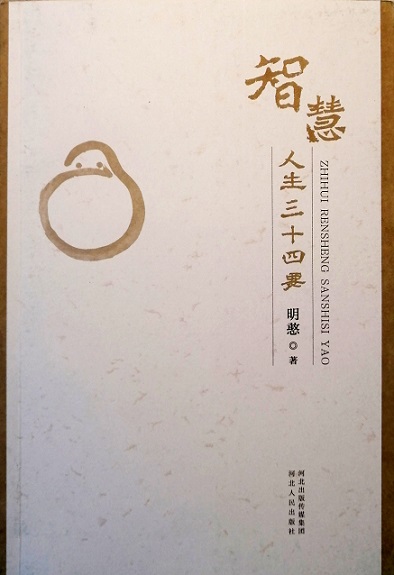It was past five, and several guests had already arrived, before the host himself got home. He went in together with Sergey Ivanovitch Koznishev and Pestsov, who had reached the street door at the same moment. These were the two leading representatives of the Moscow intellectuals, as Oblonsky had called them. Both were men respected for their character and their intelligence. They respected each other, but were in complete and hopeless disagreement upon almost every subject, not because they belonged to opposite parties, but precisely because they were of the same party (their enemies refused to see any distinction between their views); but, in that party, each had his own special shade of opinion. And since no difference is less easily overcome than the difference of opinion about semi-abstract questions, they never agreed in any opinion, and had long, indeed, been accustomed to jeer without anger, each at the other's incorrigible aberrations.
They were just going in at the door, talking of the weather, when Stepan Arkadyevitch overtook them. In the drawing room there were already sitting Prince Alexander Dmitrievitch Shtcherbatsky, young Shtcherbatsky, Turovtsin, Kitty, and Karenin.
Stepan Arkadyevitch saw immediately that things were not going well in the drawing-room without him. Darya Alexandrovna, in her best gray silk gown, obviously worried about the children, who were to have their dinner by themselves in the nursery, and by her husband's absence, was not equal to the task of making the party mix without him. All were sitting like so many priests' wives on a visit (so the old prince expressed it), obviously wondering why they were there, and pumping up remarks simply to avoid being silent. Turovtsin--good, simple man--felt unmistakably a fish out of water, and the smile with which his thick lips greeted Stepan Arkadyevitch said, as plainly as words: "Well, old boy, you have popped me down in a learned set! A drinking party now, or the Chateau des Fleurs, would be more in my line!" The old prince sat in silence, his bright little eyes watching Karenin from one side, and Stepan Arkadyevitch saw that he had already formed a phrase to sum up that politician of whom guests were invited to partake as though he were a sturgeon. Kitty was looking at the door, calling up all her energies to keep her from blushing at the entrance of Konstantin Levin. Young Shtcherbatsky, who had not been introduced to Karenin, was trying to look as though he were not in the least conscious of it. Karenin himself had followed the Petersburg fashion for a dinner with ladies and was wearing evening dress and a white tie. Stepan Arkadyevitch saw by his face that he had come simply to keep his promise, and was performing a disagreeable duty in being present at this gathering. He was indeed the person chiefly responsible for the chill benumbing all the guests before Stepan Arkadyevitch came in.
On entering the drawing room Stepan Arkadyevitch apologized, explaining that he had been detained by that prince, who was always the scapegoat for all his absences and unpunctualities, and in one moment he had made all the guests acquainted with each other, and, bringing together Alexey Alexandrovitch and Sergey Koznishev, started them on a discussion of the Russification of Poland, into which they immediately plunged with Pestsov. Slapping Turovtsin on the shoulder, he whispered something comic in his ear, and set him down by his wife and the old prince. Then he told Kitty she was looking very pretty that evening, and presented Shtcherbatsky to Karenin. In a moment he had so kneaded together the social dough that the drawing room became very lively, and there was a merry buzz of voices. Konstantin Levin was the only person who had not arrived. But this was so much the better, as going into the dining room, Stepan Arkadyevitch found to his horror that the port and sherry had been procured from Depre, and not from Levy, and, directing that the coachman should be sent off as speedily as possible to Levy's, he was going back to the drawing room.
In the dining room he was met by Konstantin Levin.
"I'm not late?"
"You can never help being late!" said Stepan Arkadyevitch, taking his arm.
"Have you a lot of people? Who's here?" asked Levin, unable to help blushing, as he knocked the snow off his cap with his glove.
"All our own set. Kitty's here. Come along, I'll introduce you to Karenin."
Stepan Arkadyevitch, for all his liberal views, was well aware that to meet Karenin was sure to be felt a flattering distinction, and so treated his best friends to this honor. But at that instant Konstantin Levin was not in a condition to feel all the gratification of making such an acquaintance. He had not seen Kitty since that memorable evening when he met Vronsky, not counting, that is, the moment when he had had a glimpse of her on the highroad. He had known at the bottom of his heart that he would see her here today. But to keep his thoughts free, he had tried to persuade himself that he did not know it. Now when he heard that she was here, he was suddenly conscious of such delight, and at the same time of such dread, that his breath failed him and he could not utter what he wanted to say.
"What is she like, what is she like? Like what she used to be, or like what she was in the carriage? What if Darya Alexandrovna told the truth? Why shouldn't it be the truth?" he thought.
"Oh, please, introduce me to Karenin," he brought out with an effort, and with a desperately determined step he walked into the drawing room and beheld her.
She was not the same as she used to be, nor was she as she had been in the carriage; she was quite different.
She was scared, shy, shame-faced, and still more charming from it. She saw him the very instant he walked into the room. She had been expecting him. She was delighted, and so confused at her own delight that there was a moment, the moment when he went up to her sister and glanced again at her, when she, and he, and Dolly, who saw it all, thought she would break down and would begin to cry. She crimsoned, turned white, crimsoned again, and grew faint, waiting with quivering lips for him to come to her. He went up to her, bowed, and held out his hand without speaking. Except for the slight quiver of her lips and the moisture in her eyes that made them brighter, her smile was almost calm as she said:
"How long it is since we've seen each other!" and with desperate determination she pressed his hand with her cold hand.
"You've not seen me, but I've seen you," said Levin, with a radiant smile of happiness. "I saw you when you were driving from the railway station to Ergushovo."
"When?" she asked, wondering.
"You were driving to Ergushovo," said Levin, feeling as if he would sob with the rapture that was flooding his heart. "And how dared I associate a thought of anything not innocent with this touching creature? And, yes, I do believe it's true what Darya Alexandrovna told me," he thought.
Stepan Arkadyevitch took him by the arm and led him away to Karenin.
"Let me introduce you." He mentioned their names.
"Very glad to meet you again," said Alexey Alexandrovitch coldly, shaking hands with Levin.
"You are acquainted?" Stepan Arkadyevitch asked in surprise.
"We spent three hours together in the train," said Levin smiling, "but got out, just as in a masquerade, quite mystified--at least I was."
"Nonsense! Come along, please," said Stepan Arkadyevitch, pointing in the direction of the dining room.
The men went into the dining-room and went up to a table, laid with six sorts of spirits and as many kinds of cheese, some with little silver spades and some without, caviar, herrings, preserves of various kinds, and plates with slices of French bread.
The men stood round the strong-smelling spirits and salt delicacies, and the discussion of the Russification of Poland between Koznishev, Karenin, and Pestsov died down in anticipation of dinner.
Sergey Ivanovitch was unequaled in his skill in winding up the most heated and serious argument by some unexpected pinch of Attic salt that changed the disposition of his opponent. He did this now.
Alexey Alexandrovitch had been maintaining that the Russification of Poland could only be accomplished as a result of larger measures which ought to be introduced by the Russian government.
Pestsov insisted that one country can only absorb another when it is the more densely populated.
Koznishev admitted both points, but with limitations. As they were going out of the drawing room to conclude the argument, Koznishev said, smiling:
"So, then, for the Russification of our foreign populations there is but one method--to bring up as many children as one can. My brother and I are terribly in fault, I see. You married men, especially you, Stepan Arkadyevitch, are the real patriots: what number have you reached?" he said, smiling genially at their host and holding out a tiny wine glass to him.
Everyone laughed, and Stepan Arkadyevitch with particular good humor.
"Oh, yes, that's the best method!" he said, munching cheese and filling the wine-glass with a special sort of spirit. The conversation dropped at the jest.
"This cheese is not bad. Shall I give you some?" said the master of the house. "Why, have you been going in for gymnastics again?" he asked Levin, pinching his muscle with his left hand. Levin smiled, bent his arm, and under Stepan Arkadyevitch's fingers the muscles swelled up like a sound cheese, hard as a knob of iron, through the fine cloth of the coat.
"What biceps! A perfect Samson!"
"I imagine great strength is needed for hunting bears," observed Alexey Alexandrovitch, who had the mistiest notions about the chase. He cut off and spread with cheese a wafer of bread fine as a spider-web.
Levin smiled.
"Not at all. Quite the contrary; a child can kill a bear," he said, with a slight bow moving aside for the ladies, who were approaching the table.
"You have killed a bear, I've been told!" said Kitty, trying assiduously to catch with her fork a perverse mushroom that would slip away, and setting the lace quivering over her white arm. "Are there bears on your place?" she added, turning her charming little head to him and smiling.
There was apparently nothing extraordinary in what she said, but what unutterable meaning there was for him in every sound, in every turn of her lips, her eyes, her hand as she said it! There was entreaty for forgiveness, and trust in him, and tenderness-- soft, timid tenderness--and promise and hope and love for him, which he could not but believe in and which choked him with happiness.
"No, we've been hunting in the Tver province. It was coming back from there that I met your beau-frere in the train, or your beau-frere's brother-in-law," he said with a smile. "It was an amusing meeting."
And he began telling with droll good-humor how, after not sleeping all night, he had, wearing an old fur-lined, full-skirted coat, got into Alexey Alexandrovitch's compartment.
"The conductor, forgetting the proverb, would have chucked me out on account of my attire; but thereupon I began expressing my feelings in elevated language, and...you, too," he said, addressing Karenin and forgetting his name, "at first would have ejected me on the ground of the old coat, but afterwards you took my part, for which I am extremely grateful."
"The rights of passengers generally to choose their seats are too ill-defined," said Alexey Alexandrovitch, rubbing the tips of his fingers on his handkerchief.
"I saw you were in uncertainty about me," said Levin, smiling good-naturedly, "but I made haste to plunge into intellectual conversation to smooth over the defects of my attire." Sergey Ivanovitch, while he kept up a conversation with their hostess, had one ear for his brother, and he glanced askance at him. "What is the matter with him today? Why such a conquering hero?" he thought. He did not know that Levin was feeling as though he had grown wings. Levin knew she was listening to his words and that she was glad to listen to him. And this was the only thing that interested him. Not in that room only, but in the whole world, there existed for him only himself, with enormously increased importance and dignity in his own eyes, and she. He felt himself on a pinnacle that made him giddy, and far away down below were all those nice excellent Karenins, Oblonskys, and all the world.
Quite without attracting notice, without glancing at them, as though there were no other places left, Stepan Arkadyevitch put Levin and Kitty side by side.
"Oh, you may as well sit there," he said to Levin.
The dinner was as choice as the china, in which Stepan Arkadyevitch was a connoisseur. The soupe Marie-Louise was a splendid success; the tiny pies eaten with it melted in the mouth and were irreproachable. The two footmen and Matvey, in white cravats, did their duty with the dishes and wines unobtrusively, quietly, and swiftly. On the material side the dinner was a success; it was no less so on the immaterial. The conversation, at times general and at times between individuals, never paused, and towards the end the company was so lively that the men rose from the table, without stopping speaking, and even Alexey Alexandrovitch thawed.






